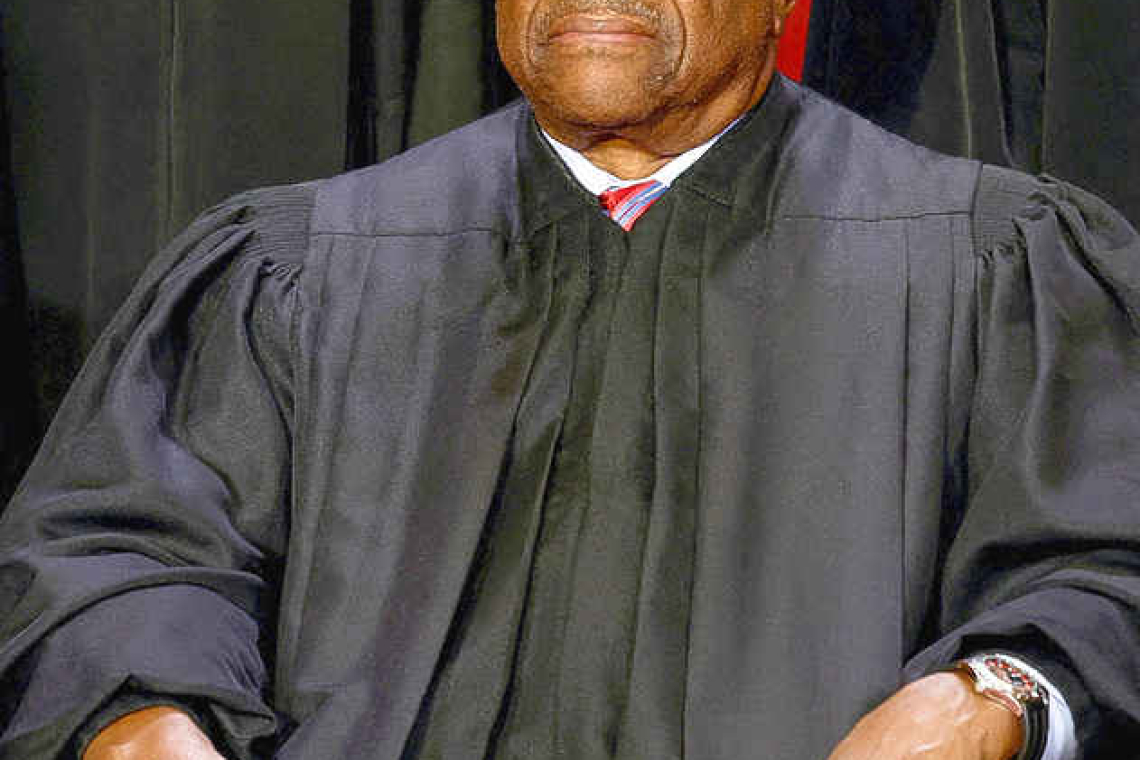WASHINGTON--U.S. Supreme Court justices and federal judges can no longer avoid disclosing the value of travel-related gifts they receive by classifying such free trips as "reimbursements" on their financial disclosure forms under new regulations now in effect. The regulations, announced by the federal judiciary late on Friday, follow revelations that conservative U.S. Supreme Court Justice Clarence Thomas had not disclosed luxury trips paid for by a wealthy benefactor. Following media reports on those trips, Thomas in August filed a delayed 2022 financial disclosure report listing private jet trips provided by Texas businessman Harlan Crow to or from Dallas for conferences in February and May of that year and to a property in upstate New York's Adirondack Mountains last July. Thomas listed the flight to the Adirondacks by private plane as well as related lodging, food and entertainment as "reimbursements" and not as a "gift" from Crow whose value would need to be disclosed. In doing so, Thomas cited advice from the staff of the U.S. Judicial Conference's Financial Disclosure Committee, which oversees judicial disclosure policies, and said his disclosure was "consistent with previous filings by other filers." His supporters previously pointed to instances in which liberal former Justices Stephen Breyer and Ruth Bader Ginsburg similarly listed as "reimbursements" trips whose value went undisclosed. Supreme Court representatives did not immediately respond to requests for comment on Monday. Steven Lubet, an emeritus professor at Northwestern University Pritzker School of Law, in a column published in September by Slate argued that the trip taken by Thomas should have been listed as a gift with a disclosed value. On Monday, Lubet called the new disclosure policy "a clarification of an existing rule that should not have needed clarifying." "Vacations as guests are gifts, and gifts require the disclosure of the value," Lubet said in an interview. The new policy, which the federal judiciary's Financial Disclosure Committee approved in January, took effect on March 13. The federal judiciary in Friday's notice said the disclosure policies were updated "to reflect past statutory changes more clearly and help ensure complete reporting of gifts and reimbursements consistent with statutory requirements." The Supreme Court in November announced its first formal code of conduct governing the ethical behaviour of its justices, following months of outside pressure over revelations of undisclosed luxury trips. The federal judiciary last year adopted other changes to its disclosure rules to clarify that judges must disclose stays at commercial properties, like hotels and resorts, and gifts of hospitality paid for by an entity or third-party other than the person providing it.







